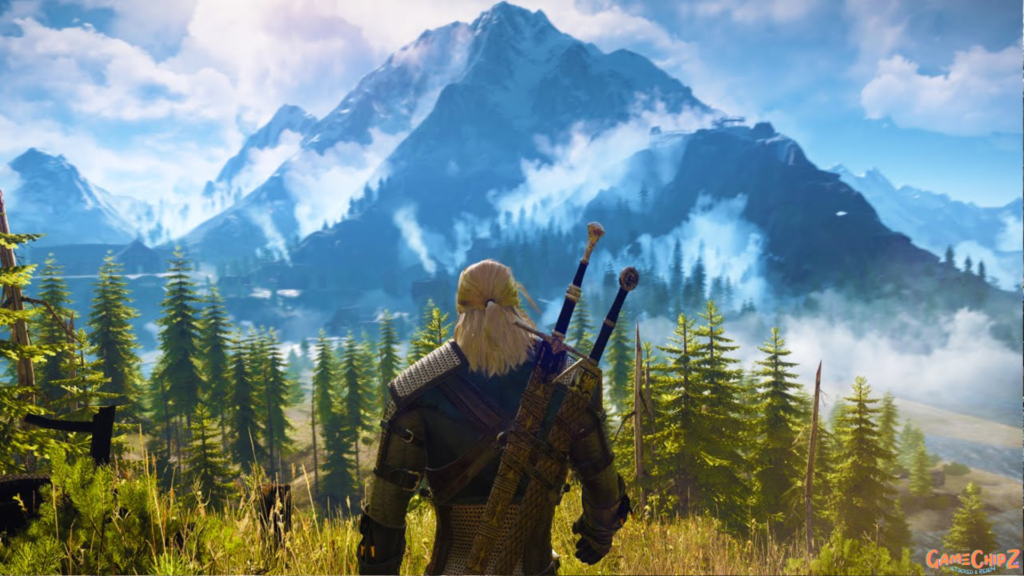Open-world games are a playground for the adventurous, offering boundless freedom to explore, battle, and create your own unique story. But while the idea of limitless possibilities sounds exciting, it can also feel overwhelming. How do you go from aimlessly wandering around a massive map to becoming the ultimate master of your virtual world?
Whether you’re a seasoned gamer or just starting your open-world journey, this guide is here to level up your experience. From perfecting exploration techniques to uncovering hidden secrets, we’ll show you how to dominate every challenge and make your mark on the game. So gear up—this guide will unlock the essential tips you need to go from rookie to legend.
Gen Z gamers are all about creating personalized experiences, and open-world games are the perfect medium for that. Whether you’re into fast-paced action or slow-burning strategy, these tips will help you play your way. Ready to conquer? Let’s dive in!
Choosing the Right Open-World Game
Find Your Perfect Adventure

The first step to mastering open-world games is picking the one that’s right for you. Not all open-world games are created equal, and your gaming style should match the vibe of the game. Are you into intense action, deep storytelling, or creative freedom? Do you prefer hacking through hordes of enemies or solving intricate puzzles? Answering these questions will help you find the game that best suits your personality.
For fans of deep narratives and immersive worlds, titles like The Witcher 3: Wild Hunt or Horizon Forbidden West offer rich storylines and character development. If you crave a challenge, try something like Elden Ring, where every corner of the map could spell disaster—or victory. If creativity and customization are more your speed, games like Minecraft or No Man’s Sky allow you to shape your own world with near-limitless possibilities.
When choosing an open-world game, consider its genre. Action-packed games focus on fast reflexes and combat, while RPGs dive deep into storytelling and character progression. Want a little bit of everything? Hybrid games like Red Dead Redemption 2 combine exploration, combat, and side quests, offering a well-rounded experience.
Pro Tip: Before diving into any open-world game, check reviews and gameplay videos to get a sense of its pacing, difficulty, and style. This way, you can ensure that you’ll love every moment of your new adventure.
Mastering Exploration

Uncover Every Corner of the Map
Exploration is the heart of mastering open-world games. Maps can feel endless, and sometimes it’s easy to get lost in side quests or distractions. But mastering exploration is essential to unlocking hidden areas, gaining valuable resources, and ultimately progressing through the game efficiently.
Start with the basics: As soon as you enter a new world, familiarize yourself with the map. Pay attention to marked locations, such as fast travel points, shops, or quest markers. Make it a habit to check your map regularly and set markers for places you want to return to later. Some games, like Assassin’s Creed Valhalla and Ghost of Tsushima, reward players for visiting certain landmarks or high points, where you can scan your surroundings and reveal hidden areas.
The golden rule of exploration: When in doubt, go off the beaten path. Some of the best treasures and hidden quests are tucked away in areas not immediately obvious. Whether it’s a cave tucked behind a waterfall or a secret village, open-world games thrive on rewarding curiosity. Titles like Breath of the Wild and Skyrim are known for their hidden secrets—so explore with a keen eye and trust your instincts.
Track your progress: Make sure you’re not running in circles by using the in-game tracking systems. Most open-world games offer map completion statistics or show icons for areas you’ve already cleared. Use these tools to make sure you’re efficiently exploring each region.
Pro Tip: Pay attention to your environment. The weather, sounds, or subtle clues in the landscape can hint at nearby hidden areas or valuable loot.
Character Development & Progression
Level Up Like a Pro

Your character is your biggest asset in any open-world game. Whether you’re wielding a sword, casting spells, or shooting arrows, how you develop your character can make all the difference in the game’s most challenging moments.
Choose your build wisely: Most open-world RPGs allow you to customize your character’s skillset through leveling up, gaining experience, and unlocking abilities. The first step is to decide which playstyle suits you best. Do you prefer a tanky character who can take damage and dish it out, or do you thrive on speed and stealth? Games like Cyberpunk 2077 and The Witcher 3 have extensive skill trees, so understanding your playstyle will help you make the right choices.
Balance is key: As tempting as it may be to max out one particular skill, don’t neglect others. You’ll want a well-rounded character capable of surviving different scenarios. For example, a sword-wielding warrior should still invest in stamina or magic to avoid getting stuck in situations where brute strength won’t cut it.
Upgrade your gear: Character development isn’t just about leveling up. Managing your inventory and equipment is crucial too. Regularly upgrade your weapons, armor, and abilities to stay ahead of increasingly difficult enemies. Games like Horizon Forbidden West offer crafting systems to enhance gear, while others, like Assassin’s Creed, focus on upgrading weapons with rare materials.
Pro Tip: Experiment with different builds and skill sets early on in the game. Many open-world games allow you to respec (reassign skill points), so don’t be afraid to change things up as you progress.
Combat Tactics for Every Playstyle

Fight Smarter, Not Harder
Combat in open-world games can be as varied as the worlds themselves. Whether you prefer slashing through enemies with a sword, sneaking up behind them for a stealthy takedown, or raining down magic from afar, there’s a playstyle for everyone. But the key to mastering combat isn’t just about your weapons—it’s about strategy.
Know your playstyle: Every player approaches combat differently. Some thrive on aggressive, head-on fighting, while others prefer to stay in the shadows, picking off enemies one by one. Games like Elden Ring cater to those looking for a challenge in hand-to-hand combat, while titles like Ghost of Tsushima offer more tactical, stealth-based options. Decide how you want to play and stick to it, upgrading your abilities and gear to support your combat style.
Adapt to the enemy: Open-world games are often filled with a wide range of enemies, from basic grunts to towering bosses with unique attack patterns. Learning the behavior of each enemy type will give you an edge. For example, in The Witcher 3, preparing with potions, oils, and the right weapon against specific monsters is key. Study your enemies, identify their weaknesses, and exploit them with precision.
Master dodging and parrying: In games with real-time combat, timing is everything. Knowing when to dodge or parry can be the difference between a smooth victory and a game over screen. In fast-paced combat games like Sekiro: Shadows Die Twice or Horizon Forbidden West, perfecting these techniques will make you nearly untouchable in battle.
Pro Tip: Don’t forget to use the environment to your advantage. Use cover, lure enemies into traps, or create chokepoints to turn the tide of battle.
Side Quests and How to Prioritize Them

Make the Most of Side Quests
Side quests are more than just filler—they’re an opportunity to level up, discover hidden lore, and gather rare loot. But with so many distractions pulling you in different directions, it’s important to know which side quests are worth your time.
Don’t skip the side quests: In many open-world games, side quests are where the magic happens. They can lead you to rare weapons, extra skill points, and even entire storylines you wouldn’t experience otherwise. Games like Red Dead Redemption 2 and The Witcher 3 are known for their rich side quests, offering mini-stories that sometimes outshine the main plot. Prioritize quests that offer unique rewards or are tied to key characters.
Avoid quest burnout: That said, not all side quests are created equal. Some can feel repetitive or unimportant. Games like Assassin’s Creed Odyssey or Far Cry 6 are known for having an overwhelming amount of quests, and it’s easy to get sidetracked. Learn to recognize the difference between meaningful quests and “fetch quests” that offer little more than extra XP.
Stack quests for efficiency: One of the best ways to tackle side quests is to complete multiple objectives in the same area. Before setting off on an adventure, check your quest log to see which tasks can be done simultaneously. This saves time and allows you to progress more efficiently, freeing you up for bigger challenges down the road.
Pro Tip: Keep an eye out for time-sensitive or seasonal side quests. Some quests might only be available for a limited period or during a specific in-game event, so prioritize those when they pop up.
The Art of Resource Management

Stay Equipped and Ready
In open-world games, resource management can make or break your journey. Whether it’s health potions, ammo, or crafting materials, keeping a well-stocked inventory is crucial to your survival. Without the proper gear, even the most skilled player can fall to an underprepared moment.
Gather wisely: While it might be tempting to pick up every item you come across, not all loot is created equal. Prioritize resources that suit your playstyle. If you’re playing a ranged fighter, stock up on arrows or bullets. If you’re more into crafting, like in Horizon Forbidden West or Fallout 4, collect materials needed for upgrading your weapons and armor. Don’t waste space on items that won’t benefit your build.
Know when to craft and upgrade: In games with crafting systems, like The Legend of Zelda: Breath of the Wild or The Witcher 3, crafting is often your key to survival. Prioritize crafting health items and upgrading your gear early on. Upgraded weapons and armor can give you the edge you need in tough battles, while health and stamina boosts will help you stay in the fight longer. However, don’t waste rare materials on unnecessary upgrades—save them for items that truly matter.
Manage your inventory: Managing your inventory is a very essential skill for mastering open-world games, particularly in titles like Skyrim and Red Dead Redemption 2. Having a cluttered inventory can slow you down or even prevent you from carrying key items. Regularly check and clear out unnecessary gear or materials. Keep your inventory streamlined and make sure you have room for new loot when you explore.
Pro Tip: When low on supplies, visit vendors or fast travel to safe zones to restock. Don’t get caught in the middle of an epic boss fight without health potions or ammo!
Multiplayer and Co-op in Open-World Games

Conquer the World with Friends
Some of the best open-world experiences aren’t meant to be conquered alone. Multiplayer and co-op modes have taken open-world games to new heights, allowing players to team up and explore massive worlds together. Whether you’re battling enemies or building entire cities, bringing friends into your game can add a whole new layer of excitement.
Choose your squad wisely: In multiplayer open-world games like GTA V or No Man’s Sky, success often hinges on teamwork. Make sure your squad is on the same page when it comes to goals and playstyles. Are you looking to grind out quests or just casually explore? Assign roles within the group, like healer, tank, or DPS, to ensure your team is balanced and ready for any challenge.
Communication is key: Clear communication can make all the difference when tackling tough missions or massive world events. Whether you’re exploring a sprawling universe in No Man’s Sky or engaging in raids in Destiny 2, make use of voice chat or in-game messaging to keep your team organized. Good teamwork can turn a tough battle into an easy victory.
Balance exploration and progression: It’s easy to get sidetracked when playing with friends, but be mindful of how you’re progressing through the game. Some multiplayer games scale the difficulty based on your level, so ensure that everyone in your squad is progressing at a similar pace. If one player levels up too fast, it could make future missions too difficult for others.
Pro Tip: In some games, playing co-op with higher-level friends can unlock endgame content early, but be prepared for tougher challenges!
Boss Battles and World Events

Prepare for Epic Showdowns
Boss battles and world events are the ultimate tests of your skill and preparation in open-world games. These epic encounters often feature larger-than-life enemies with unique attack patterns and mechanics that can easily overwhelm unprepared players.
Study the enemy: Before jumping into a boss fight, take the time to observe your opponent. Many games, such as Dark Souls or Elden Ring, feature bosses with distinct attack patterns that can be learned and countered. Watch for tells—whether it’s the glow of a sword or the wind-up of a punch—and react accordingly. These cues are key to dodging, parrying, or counter-attacking at the right moment.
Upgrade before the fight: Don’t face a boss battle without proper gear and abilities. Prior to a big fight, make sure your weapons are fully upgraded and that you’ve stocked up on healing items or buffs. Some open-world games, like Monster Hunter: World or The Legend of Zelda: Breath of the Wild, allow you to prepare by crafting potions, traps, or special gear tailored to specific bosses. Use these advantages to tip the scales in your favor.
Leverage the environment: Many open-world games feature destructible environments or interactive elements that can help you during boss fights. In Horizon Forbidden West, for example, you can use the terrain to create choke points or lure enemies into traps. Pay attention to your surroundings and use the environment to gain an edge.
Pro Tip: Don’t be afraid to run! If a boss fight seems unwinnable, some games allow you to retreat, regroup, and return when you’re stronger.
Completing the Main Quest and Achieving 100% Completion
Finish Strong and Leave No Stone Unturned
Every open-world game has a main questline that drives the story forward, but for completionists, the game doesn’t end when the credits roll. Achieving 100% completion—finding every secret, finishing every side quest, and collecting every item—is the true test of mastery.
Focus on the main quest first: While it’s tempting to get lost in side activities, it’s a good idea to prioritize the main quest early on. Games like The Witcher 3 and Assassin’s Creed Valhalla offer sprawling stories with multiple plot twists, and finishing the main quest first can give you important context for side missions. Plus, many open-world games unlock new areas, abilities, or gear once the main story is complete, making the rest of the game easier to conquer.
Use guides for 100% completion: If you’re serious about achieving 100%, don’t hesitate to consult guides or online maps. Open-world games are notorious for hiding items or secrets in obscure locations. Games like Red Dead Redemption 2 or Skyrim are filled with hidden collectibles, and tracking down every last one can be a daunting task without a little help from the community.
Save post-game content for last: Many open-world games, such as Marvel’s Spider-Man or Horizon Forbidden West, offer special post-game content that’s only accessible after you’ve completed the main quest. This content often includes the hardest challenges, rarest items, or unique world events, so leave it for when you’re fully prepared.



